| Composer's Voice Concert | ![[ Vox Novus - the new voice for contemporary music ]](http://www.voxnovus.com/img/Vox_Novus_Logo_black.png) |
| Leap Day Licks | |
| February 29, 2004 | |
| UNDER St. Marks 94 Saint Marks Place New York, New York 10002 |
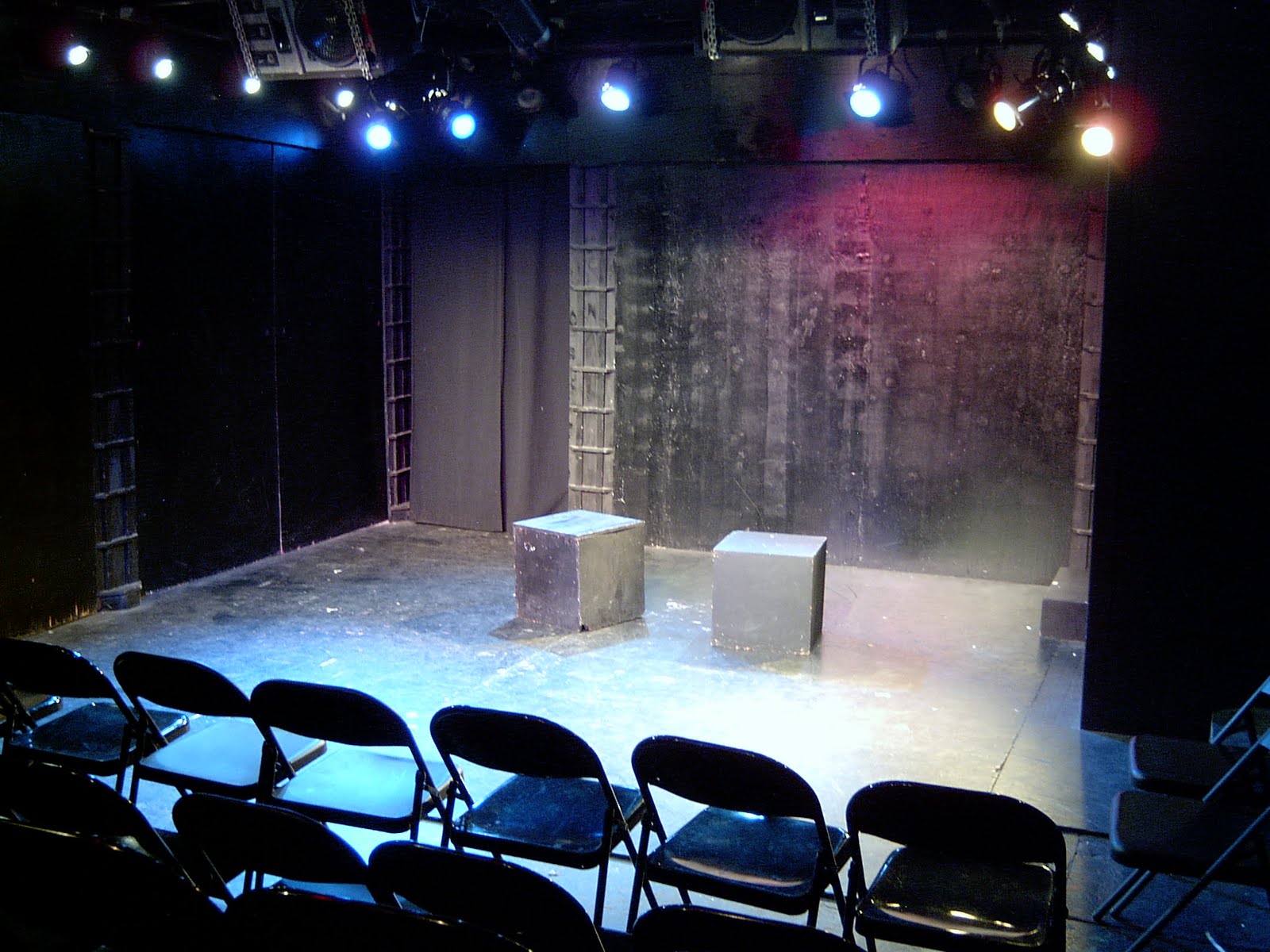 |
Leap Day Licks is a Composer's Voice Concert featuring the composer Jennifer Griffith. Composer's Voice is a venue to express the artistry and aesthetic of the composer's "voice". |
| Title | Composers | Performers |
| A Little Beastliness for Guitar I. Bug-eyed II. Camel III. Frogs | Jennifer Griffith | Oren Fader - guitar |
| Tango Grotesco | Sean Hickey | Oren Fader - guitar |
| Viola Split | Jennifer Griffith | Leanne Darling - viola |
| Primo Volo | Marco Oppedisano | Oren Fader - guitar |
| music in motion for soprano and violin I. blank pages II. heavy clouds III. poetry gone IV. flowing streams | Robert Voisey | Rachel Carter White - soprano and Ana Milosavljevic - violin |
| Two Pieces for Flute, Oboe and Guitar I. Remembering Jobim II. Moodswing | Jennifer Griffith | Margaret Lancaster - Alto flute, John Frisch - Oboe, and Oren Fader - Guitar |
| Haunted Palace | Eric Schwartz | Oren Fader - guitar and Eric Schwartz - narrator |
| Mambo for Two Guitars | Ben Bierman | Oren Fader - guitar and William Anderson -guitar |
| Pandora's Hope | Jennifer Griffith | Oren Fader - guitar, William Anderson - guitar, Margaret Lancaster - flute, John Frisch - oboe, Ana Milosavljevic - violin, and Jennifer Devore - cello |
| Performers | |
| William Anderson's reputation is derived from a great diversity of musical activities over the past 20 years-- highly acclaimed performances with a great variety of ensembles and music festivals in the U.S and abroad; a great number of arrangements and compositions; work with the pioneering chamber ensemble, Cygnus, which he founded in 1985; and many successful and daring ventures undertaken as Artistic Director of the Composers Guild of New Jersey. | |
| David Denton in Fanfare exclaims: “Anderson’s playing is of a very high order of dexterity, virtuosity and brilliance, and is indicative of the tremendous advances made in guitar technique over the past four decades.” At age 19 he began playing chamber music at the Tanglewood Music Festival, where he performed from 1981 through 1988. In 1982 he began studying with America's premiere guitar pioneer David Starobin, who introduced him to the music community in New York City. His first solo recital was presented by the League of Composers/ISCM at Weill Hall, New York City (1990). He was also presented in recital by Music From Japan at the Asia Society (1993). He regularly appears in Washinton D.C.with the Theater Chamber Players at the Kennedy Center, performing both solo guitar and chamber music repertoire. Mr. Anderson has been a soloist in festivals and ensembles such as the Bang on a Can Festival, the Brooklyn Philharmonic, and Modern Works! He has been heard on radio broadcasts on WNYC, WKCR, WGBH, and National Public Radio, Polish National Radio, Radio Bremen, and others. | |
| Leanne Darling draws from her classical technique, her Arabic and jazz skills, and her passion for improvisation to break the boundaries of traditional viola playing. Leanne has performed as soloist and chamber musician in England, Austria, Slovenia, France, and throughout the US in art galleries, film theaters, clubs, and concert halls. Prior to moving to New York, Leanne was violist of the New Artists Piano Quartet and assistant principal violist of the Florida West Coast Symphony. Leanne began improvising and experimenting with jazz, blues and Arabic music seven years ago. She performs regularly in rock and world music bands, string quartets, free jazz ensembles and composes works for solo viola and looping device. She is currently studying classical Arabic music with virtuoso oudist and violinist Simon Shaheen, and jazz improvisation with Julie Lyonn Lieberman. Recent appearances include a collaboration with Shaheen at Joe's Pub in New York, and a featured performance at the 2003 ASTA National conference in Columbus, OH. When not performing, Leanne teaches improvisation to young string players in Harlem and Brooklyn. | |
| Cellist Jennifer DeVore received her BA in Art History from Harvard University before earning her Masters degree from the New England Conservatory, where her teachers were Colin Carr and Laurence Lesser. An active chamber musician and soloist, she has appeared at Lincoln Center, Merkin Hall and Carnegie Recital Hall. Among the groups she has played With are the Metamorphosen Chamber Orchestra, FLUX Quartet, the STX! Ensemble USA and Ensemble America. She is currently a member of the Lumina String Quartet and Ensemble Toki. Particularly interested in contemporary music, Ms. DeVore has premiered many solo and chamber works, played in the Bang-On-A-Can Marathon and on WNYC’s “New Sounds” and has recorded pieces by Cage and Xenakis. | |
| Oren Fader is active as a performer of classical guitar repertoire, both traditional and contemporary. Reviewing his solo New York recital, Guitar Review magazine stated: “His scholarship, technique, and intelligent musicianship are plainly evident and the beauty of his tone is consistently compelling.” Mr. Fader is well known for his performance of contemporary music. In a performance of Mario Davidovsky’s Synchronisms #10 for guitar and electronic tape, The New York Times wrote: “Oren Fader gave the guitar part a polished, energetic performance that was precisely matched to the tape sounds”. And at a recent performance The New York Times called Mr. Fader’s playing “Electrifying”. As a member of the Award-winning new music ensembles Cygnus, Fireworks, and Parnassus, he has premiered over 50 solo and chamber works with guitar, including compositions by Babbitt, Wuorinen, Machover, Biscardi, Currier, Naito, Pollock, and others. Mr. Fader received his undergraduate degree from SUNY Purchase and his Master of Music (Performance) degree from Florida State University. His major teachers include David Starobin and Bruce Holzman. Since 1994 Mr. Fader has been on the guitar faculty of the Manhattan School of Music, where he directs the Guitar Chamber Music program. | |
| John Frisch, oboist; appears frequently as soloist, chamber musician, and orchestral player. Based in New York City, he has played in Broadway pits and for many area orchestras, including Albany Symphony Orchestra, Alvin Ailey Dance Company, EOS, Harmonie Ensemble, Jupiter Symphony, Long Island Philharmonic, New York City Opera, New York Pops, Stamford Symphony, Queens Symphony, and for the Mostly Mozart Festival. As a member of the New York Kammermusiker, a double-reed consort, he has toured internationally and recorded for Dorian Records. A doctoral candidate at the CUNY. Graduate Center, he received his B.A. in Philosophy from Columbia University and his M.M. from the Yale School of Music, where he studied with Ronald Roseman. Hailed as the “leading exponent of the avant-garde flute” (Kyle Gann, Village Voice), Margaret Lancaster has built a large repertoire of new works that employ extended techniques, dance, drama, multi-media, and electronics. Lancaster is a member of Essential Music and Downtown Ensemble, a recurring performer at Spoleto Festival USA, BONK Festival, Three Two Festival, and Santa Fe New Music performance highlights: Lincoln Center Festival, Paul Zukofskyąs Musical Observations, Bargemusic, and Bremen Musikfest with Absolute lecturer/soloist appearances include Dartmouth College, Princeton University, and the National Flute Association Lancaster is the recipient of a 2003 Meet the Composer Commissioning Music/USA grant and can be seen on stage in the ongoing Mabou Mines production DOLLHOUSE. | |
| Violinist Ana Milosavljevic has performed widely through Europe and the United States as solo, chamber and orchestral musician. She was also a member of the ensembles that won several prizes at the competitions in Italy and former Yugoslavia. In 1998 and 1999 she won a scholarship to the Aspen Music Festival and School. She has performed at the Spoleto Music Festival in Italy, the International Summer Academy at the University of Mozarteum in Salzburg and the Santo Domingo Music Festival. Her extensive orchestral experiences also include performances at Carnegie Hall, the Alice Tully Hall and Verizon Hall. A native of Serbia, Ms. Milosavljevic received her early training at the School for the Musically Gifted Children. She received her Bachelor’s Degree in Music Performance at the Academy of Arts in Novi Sad, Yugoslavia. She has performed in the masterclasses given by Dorothy DeLay, Marina Jashvili, Sreten Krstic and Wen Qian. She lives in New York City, pursuing her Master’s Degree at the Mannes College of Music, where she studies with Lewis Kaplan and Muneko Otani. Ms. Milosavljevic is on the violin faculty at the Mannes Prep Division and at the Preparatory Center for the Performing Arts at Brooklyn College. For the past two seasons, Ana Milosavljevic was a grant winner of New York Women Composers, Inc., performing the recitals in New York City and Maryland. This season, she also presented music by New York Women Composers on a November recital at the Nicholas Roerich Museum, and on a February recital at the Greenwich House Arts, as a part of the series Women’s Work. | |
| Composers | |
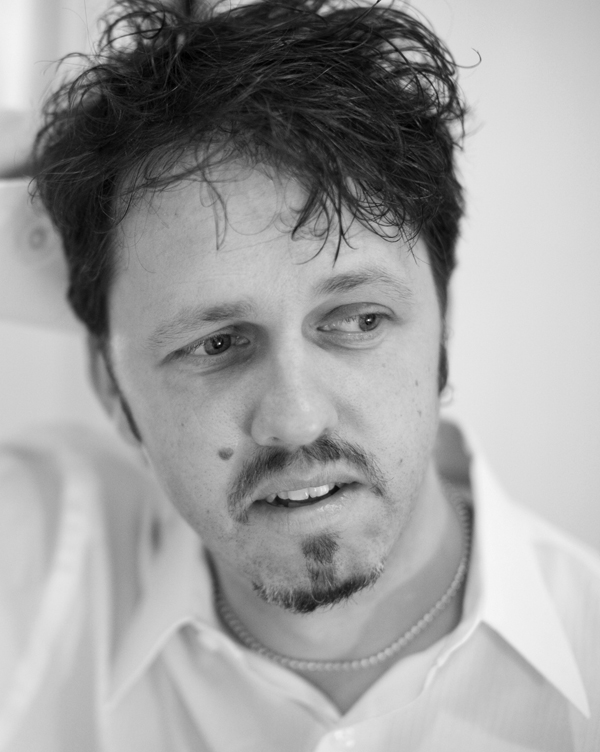 |
Born in Detroit, Michigan in 1970, Sean Hickey’s earliest music education began at age 12 with an electric guitar, a Peavey amp, and a stack of Van Halen records, the early ones of course. He studied jazz guitar at Oakland University, later graduating with a degree in composition and theory from Wayne State University. His primary instructors were James Hartway and James Lentini. Since moving to New York, Sean has pursued further studies with Justin Dello Joio and Gloria Coates. He has composed for a variety of media including stage and film. 2003 has been a busy year thus far with performances of his piano music at New York’s Weill Hall in addition to the first concert dedicated entirely to his chamber and solo music, at CAMI Hall. He is presently fulfilling commissions for New York’s One World Symphony, the Adesso Choral Society in Connecticut, and the Spain-based piano/accordion duo An-Tifon. His principal instruments are guitar and piano. Sean has composed upon commission Runes and Alphabets for Philadelphia-based ensemble Ars Futura and is a recipient of a 2003 ASCAP award and was named a semi-finalist in the Auros 2001-2002 Composition Competition, also winning second prize in the 1990 State Awards (composition) in the former Yugoslavia. The past year has seen performances in New York, Washington DC, Portugal, Ireland and Turkey. He is an ASCAP member. Several of his recording and concert reviews may be found in the pages of the New Music Connoisseur, 21st Century Music, Modern Dance and numerous other publications. He is also a principal contributor to the forthcoming MusicHound Guide to Classical Music. He has also contributed liner notes to dozens of classical recordings and travel and adventure articles for a variety of publications. |
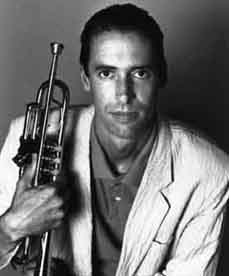 |
Ben Bierman is a composer, trumpet player, pianist, arranger, producer, society trumpeter and band leader. He has a very wide range of experiences, and an eclectic aesthetic sensibility to match. As a composer, his works have been performed both nationally and internationally. As a trumpet player he has performed and recorded with such diverse artists as B.B. King, Archie Shepp, Machito, Ray Barretto, Tito Puente, Celia Cruz, Johnny Copeland, Albert Collins, Robert Cray, Stevie Ray Vaughn, and James Cotton. Bierman is currently finishing his Masters Degree in composition at the Conservatory of Music at Brooklyn College, where he is the Graduate Fellow at the Center for Computer Music, and has begun his Doctoral work in composition at the City University of New York Graduate Center. He has studied composition with Tania Leon, John Corigliano, and David Del Tredici. Bierman was the recipient of the Institute for Studies in American Music Award in Composition for 2000, as well as the Rosa Riegelman award for Music Scholarship. |
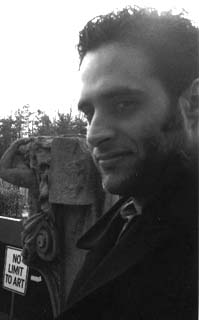 |
Marco Oppedisano was born in Brooklyn, New York. A composer and guitarist, he has studied classical guitar with with Michael Cedric Smith. He holds a B.A in Music Composition from the Brooklyn College Conservatory of Music, an M.A in Music Composition from the Queens College Aaron Copland School of Music and has studied composition with Noah Creshevsky, Charles Dodge, Tania Leon, Thea Musgrave and Henry Weinberg. From 1999-2003, as a guest of the Brooklyn College/ CUNY Electro-Acoustic Composers yearly compact disc, Oppedisano has also conducted the premieres of his a cappella vocal works; The Emperor of Ice Cream (1998) and The Creation (2002). In May 2002, his multitrack electric guitar work, Frozen Tears was heard in an electro-acoustic music festival at Bilgi University in Istanbul, Turkey. Oppedisano has had other electronic works heard around the world. In 1996 he received a grant from Meet the Composer, Inc. for his work Three Short Pieces for flute, clarinet, trombone and electric guitar (1995). His works are registered with ASCAP. |
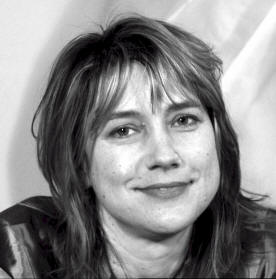 |
Originally from Oregon, Jennifer Louis Griffith moved to New York City from New England where she earned a Masters degree in composition at Smith College. Previously she studied piano in the U.S and abroad. Currently she plays classical piano and accompanies herself as jazz vocalist in various New York City clubs. She recently completed a mini-opera entitled Dream President, based on her actual dreams about a former U.S president. Griffith studies with David Del Tredici and Tania Leon at the CUNY Graduate Center where she is earning a doctorate in composition. |
 |
Eric Schwartz has studied composition at the Cleveland Institute of Music, New York University, and both the Interlochen and Aspen Summer Music Festivals. Past teachers have included Donald Erb, Margaret Brouwer, George Tsontakis, and Justin Dello Joio. His diverse musical background is also made up of screaming and performance art for various metal and art rock groups, playing guitar in jazz big bands, and accompanying modern dance classes on the piano. Primarily interested in a synthesis of seemingly disparate musical archetypes, Schwartz is always working on a variety of genre bending projects. Schwartz is currently on the music theory faculty of New York University. He is a cofounder/resident composer of the Brooklyn based new music group Forecast Music, presenting an ongoing series of monthly concerts in NYC. |
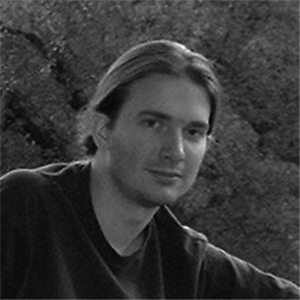 |
Robert Voisey has enjoyed debuts of his music all around the United States and abroad, including performances broadcasted on “Kol Muscia” (the voice of music) Israeli National Radio, the “Foldover” radio show in Oberlin Ohio, and his recent album "Dark Desert" on the "Kalvos and Damian" radio show. Recently he has had debuts: Base has been performed in Universitatea Nationala de Musica Bucuresti, Bucharest, Romania, the U.S. premier of Tears of Dew at the Artburst festival in Birmingham, Alabama, Music in Motion at the Gemeindehaus der Zionskirche in Worpswede, Germany and in Buenos Aires Argentina with La Scalar de San Telmo. As Artistic Director of the Composer’s Voice Concert Series and the 60x60 project, he strives to promote the music of his fellow composers and musicians through continual concert series. "Robert Voisey composes music as a natural part of his life…” - Noah Creshevsky |
Program Notes: |
|
A Little Beastliness for Guitar were pieces initially inspired by some ceramic frog musicians which were plopped on the piano by Dr. Mark (my housemate) one day. I liked the idea of writing a bestiary for guitar and added the Camel, and more recently Bug-eyed, in which I attempted to fulfill a request of Mr. Fader that I write something “beautiful and arpeggiated.” Of course, bugs and beauty, and bugs and arpeggiations aren’t normally associated, but neither were scales and bees until Rimsky-Korsakov wrote Flight of the Bumblebee.
Tango Grotesco was composed in 2001 and first performed in June of that year by Jack DeSalvo at the Brooklyn Conservatory of Music. In one movement, the piece evokes the tradition and complexity of the modern Argentine tango combined with the nostalgia that the form often embraces. Also present is the influence of such other Latin American guitar composers as Lauro, Barrios and Villa-Lobos. Viola Split is receiving its premičre at this concert. Viola Split has been a collaborative project. Leanne’s inventiveness is integral and absolutely essential to the piece, which divides and combines written with improvised sections. The Boomerang, or looping device has the ability to record and loop music, stack more loops, and to put sounds into reverse, making for some new viola sonorities. Primo Volo ("first flight") is a one movement work for solo classical guitar written for Oren Fader. Music in Motion is a song cycle of 4 short pieces, flowing streams, heavy clouds, blank pages, and poetry gone. They were written in the remembrance of fleeting verse on a busy spring morning. Music in motion was first written for tenor and viola. Later Agueda Abad-Pages commissioned this arrangement and debuted its performance in Buenos Aires. This is its premiere of this arrangement in the United States. blank pages Blank pages of the mind Walk orderly in time To a life that is mine But the same in kind Am I waking from a dream Or am I falling asleep I drift in and out of reality Not knowing which is fantasy heavy clouds Sleep Heavy puffy clouds Leak into your mind Bring thoughts unseen to the light But are nocturnal To frolic at night Fall and slumber To slow Onto deep Engulfing Slee… poetry gone Poetry gone Lost in the tracks of time Sleeping alone Hiding in the shadows of my mind Lost memories Words in rhythm that I will never find Feelings I used to see But now I am forever blind flowing streams Sticky sweet Pink And orange Drips And falls Tenderly Onto my tongue And I touch my lips My eyes close I dream Clouds Cotton candy Lollipops And chocolate streams Flowing In my mind Of succulence Two Pieces for Alto Flute, Oboe, and Guitar are student pieces I wrote for members of the Cygnus Ensemble. Remembering Jobim begins with a chord progression the composer Antonio Carlos Jobim took from Chopin’s E Minor prelude. Moodswing is a short study in chromaticism. The Haunted Palace There are simply some writers that inspire you to do your best work, and Poe is certainly one of those for Eric Schwartz. The Haunted Palace was derived from a scene in the Poe story "The Fall of the House of Usher", and while it is not intended to recreate the actual scene within the story, the oppressive and steadily decomposing atmosphere of Usher permeates both the poem, and the music. Formally, it was great fun allowing the music to steadily decay in the final movements of this piece. Haunted Palace I In the greenest of our valleys, By good angels tenanted, Once a fair and stately palace- Radiant palace-reared its head. In the monarch thoughts dominion- It stood there! Never seraph spread a pinion Over fabric half so fair. II Banners yellow, glorious, golden, On its roof did float and flow; (This-all this-was in the olden Time long ago) And every gentle air that dallied, In that sweet day, Along the ramparts plumed and pallid, A winged odor went away. III Wanderers in that happy valley Through two luminous windows saw Spirits moving musically To a lute's well-tuned law, Round about a throne, where sitting (Porphyrogene!) In state his glory well befitting, The ruler of the realm was seen. IV And all with pearl and ruby glowing Was the fair palace door, Through which came flowing, flowing, flowing, And sparkling evermore, A troop of Echoes whose sweet duty Was but to sing, In voices of surpassing beauty, The wit and wisdom of the king. V But evil things, in robes of sorrow, Assailed the monarch's high estate; (Ah, let us mourn, for never morrow Shall dawn upon him, desolate!) And, round about his home, the glory That blushed and bloomed Is but a dim-remembered story Of the old time entombed. VI And travelers now within that valley, Through the red-litten windows, see Vast forms that move fantastically To a discordant melody; While, like a rapid ghastly river, Through the pale door, A hideous throng rush out forever, And laugh-but smile no more. Blues Mambo for Two Guitars is a bluesy, mambo-like piece (surprise, surprise!) that consists of a blues melody in one guitar part, and a montuno accompaniment in the other. It combines a blues form with a salsa form: after two blues choruses, the guitars play a mambo section as an interlude, after which they conclude the piece with a final blues chorus. There are rhythmic twists and turns along the way, and a few stretched harmonies, but otherwise it is fairly straight-ahead. It was written for William Anderson and Oren Fader who are premiering the piece tonight. Pandora’s Hope is an autobiographical piece suggesting the sense of play and wonder I had as a child, and the fears and anxiety about the world that dulled my enthusiasm for it. The middle section responds to the sense of hopelessness with a lyrical melody that serves as a balm to soothe the ills that Pandora let out into the world. |
|
The mission of Vox Novus is to promote contemporary composers and their music via concert performances, recordings, publishing, and publicity on the Internet. Vox Novus believes strongly in the intrinsic value of contemporary music, recognizing it as a force in the advancement of culture and art. We help keep it alive through the promotion and dissemination of the music of contemporary composers. Our goal is to broaden the channels of new music between composer and public, providing greater exposure to new music. New music has always been stigmatized, yet all musical masterpieces at one time were considered new music. Vox Novus understands that without the creation of challenging, contemporary music there will be no future masterpieces to reflect our time. Exciting new works of art are coming forth constantly, and must be heard in order for the cycle of creativity to be complete. Vox Novus gets the music heard: in concerts, over the radio, on CD’s, and on the Internet. While throughout the ages artists have struggled to create their art, one may argue that artists have never been more precarious than they are now. Today’s economic climate is competitive, and emerging composers inevitably act as their own writer, producer, publicist, agent, and sometimes performer. This is a daunting array of tasks, one that unfortunately crushes the attempts of many composers who are simply not adjusted to the present environment. Vox Novus empowers the composer to promote, expand, and advance their career. Perceiving that the most important corollary to a completed work is a performance, Vox Novus generates concerts. In these concerts we develop audiences that include yet extend beyond the bounds of the musical community, broadening the audience base by familiarizing it with certain works in repeat performances, while continuously integrating new composers into the repertoire. Vox Novus helps to fill the many roles required to promote and produce contemporary music while simultaneously teaching composers how to do it themselves. We accomplish this by providing the composer with a web page, putting on Composer’s Voice concerts, and encouraging composers to create and foster audiences. Vox Novus publicizes concerts with e-mail announcements, postings on the web, mailings, flyers and word of mouth communication. At our Composer’s Voice concerts, we encourage communication and feedback through formatted discussion between composer and audience, and also through commentary cards. This provides the composer with important insight into their work and gives the audience a feeling of power and a relation to contemporary music. Vox Novus takes a creative approach to the problem of joining the audience and composer of electronic music. This is the 60x60 project, an annual concert event featuring 60 seconds of electronic music by 60 different composers, creating a CD as the material and product of the concert. In this way composers gain a maximum degree of exposure while audiences enjoy a highly interesting and palatable product. The project was inaugurated in 2003. In the future Vox Novus aims to incorporate visual artists, thereby making this a multi-media event and broadening the audience base by cross-pollinating with other artistic mediums. The Website is another important vehicle in the promotion of contemporary music. Since 2000, our website had provided over 100 composers and musicians with a place on the web, a vital tool of survival in the modern day. This allows composers and musicians to post their bios, list of works including bandwidth for listening and down-loading, availability, publish scores, and advertise their up-coming Vox Novus concerts. With our website attracting over 300 visitors a day, our Composer’s Voice concerts running throughout the concert seasons, and our annual electronic concert, 60x60, gaining increasing momentum, we at Vox Novus work hard to promote contemporary music. Our heart lies in the music. |
| Brought to you by | |||
 |
 |
||
| Funding by | |||
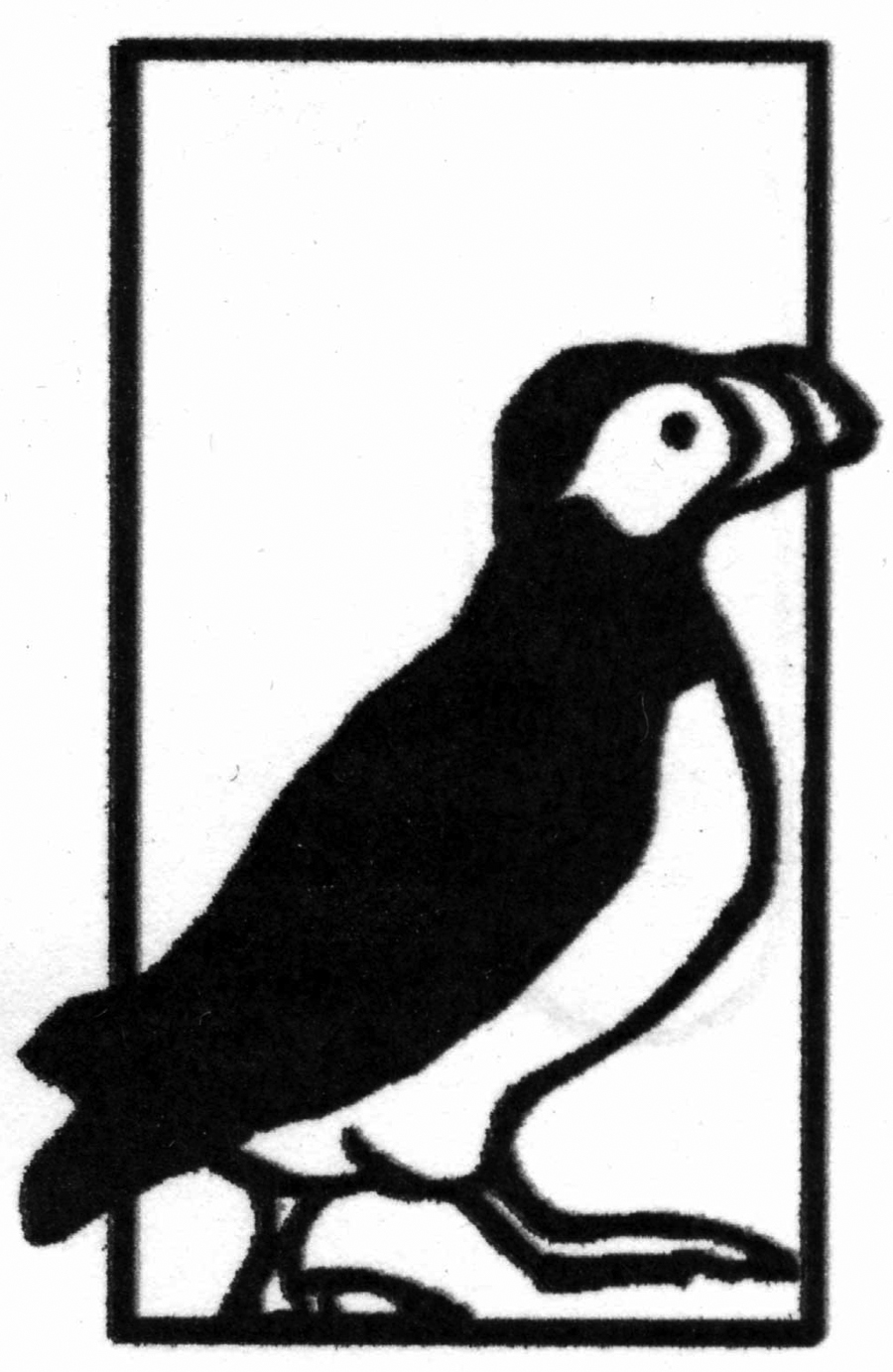 |
|||
| Funding also provided by the Puffin Foundation, "...continuing the dialogue between art and lives of ordinary people." | |||
| Home | ||||||||||||
| Calendar | ||||||||||||
| History | ||||||||||||
| Opportunities | ||||||||||||
| Vox Novus | ||||||||||||
| Site Map | ||||||||||||
| Contact | ||||||||||||
| Hosted by Malted/Media and Kalvos & Damian's New Music Bazaar | ||||||||||||
![[ Vox Novus - the new voice for contemporary music ]](http://www.voxnovus.com/img/Vox_Novus_Logo_black.png) | ||||||||||||
![[ Composer's Voice ]](http://www.voxnovus.com/img/Composers_Voice_Collaboration_Logo.png) | ||||||||||||